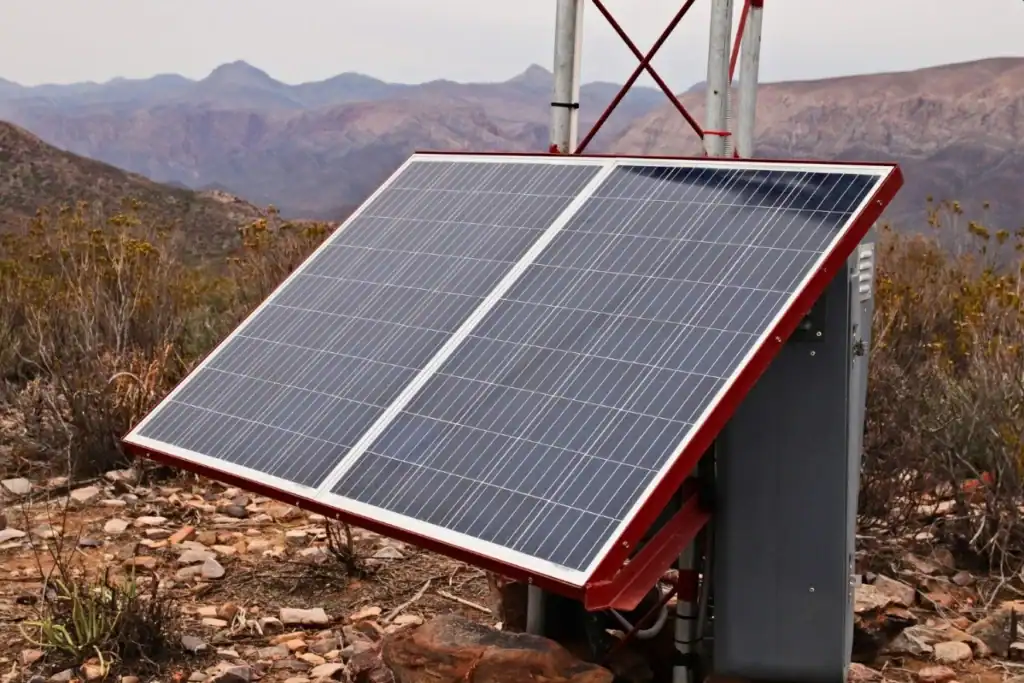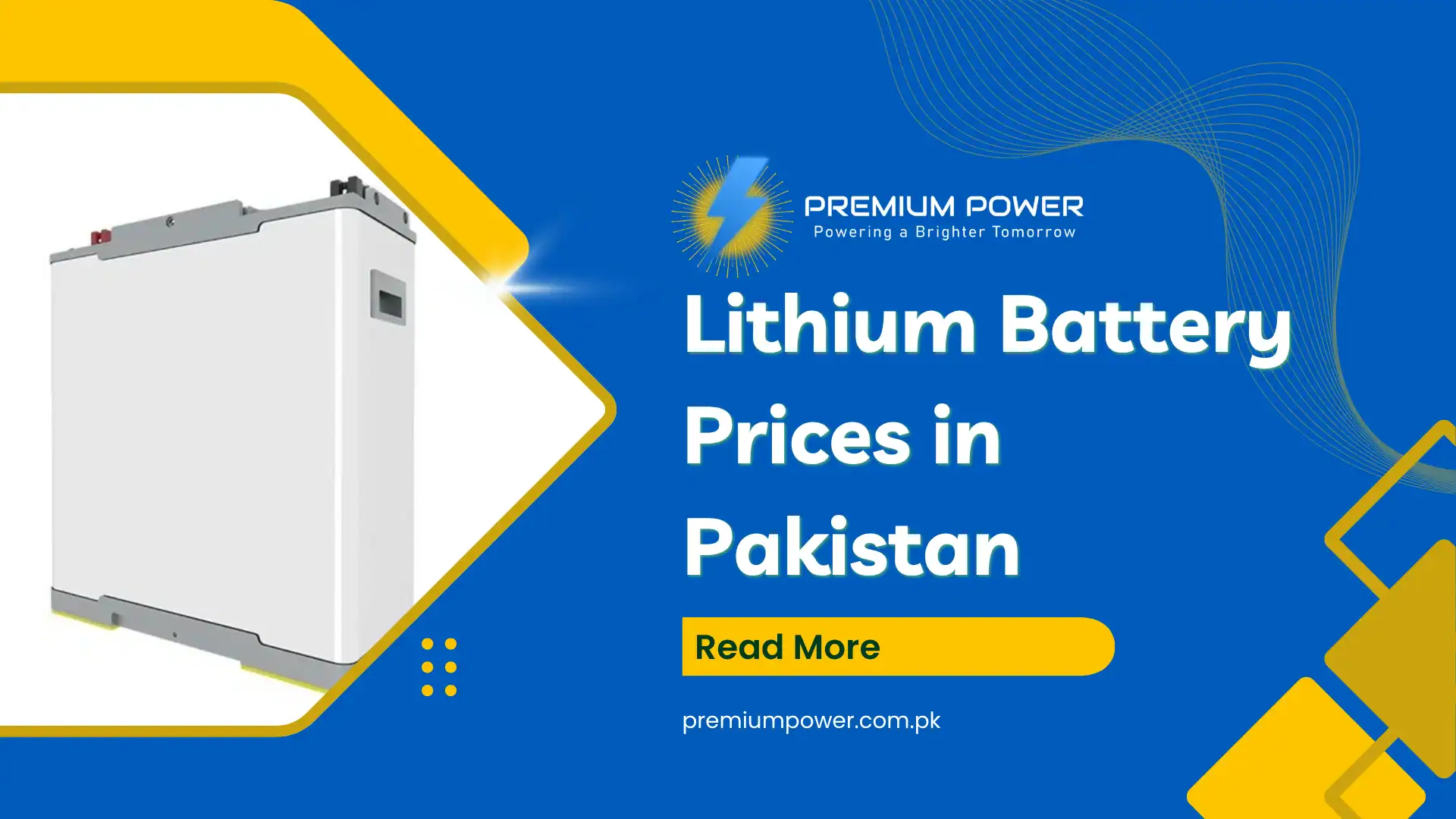Looking to join the masses turning fast toward clean energy solutions to face long power cuts and high power bills in Pakistan? Solar panels are a great tech change, but they do not solve every power supply issue. Many users find that solar setups alone cannot give power at night or on cloudy days. This is where batteries matter, which is why we will dive into the current lithium battery price in Pakistan. Learn about its long-term value and how this tech shapes the future of solar setups for homes and shops.
Breaking Down Lithium Battery Price in Pakistan: Is It Worth It?
The shift to lithium-ion technology shows that the country is moving toward smarter power use. While lead acid remains cheaper, it no longer meets the needs of modern users. As of now, you will find the price of lithium ion battery in Pakistan starts from around PKR 230,000 for good quality models and can go as high as PKR 500,000 for large packs with more backup time.
Consider the table below to learn the leading options for lithium solar battery price in Pakistan:
| Brand | Popular Lithium Battery Model | Price Range (PKR) |
| Narada | Narada NPFC100 / NESR48100 48-/51.2 V, 100Ah (≈ 5 kWh) Lithium Iron Phosphate | 235,000 to 340,000 |
| GoodWe | Lynx A G3 Series 5 kWh Lithium Battery (51.2V, 100Ah) | 260,000 |
| Dyness | Dyness BX51100 / DL 5.0C 5.1 kWh (51.2V,100Ah) | 235,000 to 255,000 |
| BYD | Battery-Box LV5.0 5kWh LV battery module (51.2V, ~100Ah) | 260,000 |
| Ziewnic | Ziewnic Z-Box 100Ah 51.2 V LiFePO4 pack | 295,000 |
Even though these rates may seem high, many buyers view the lithium battery as a safe long-term choice. It can outlast lead acid ones by years. When you figure life span and energy cycles, it saves more money down the line.
Whether your choice of a solar setup is the 15kW solar system, the final rate depends on a number of factors. You need to consider the brand and voltage, plus warranty. Of course, choosing the right size is the main factor to know about. A small 12 V pack may cost far less, but such units are not enough for full home backup.
Navigating the Rising Lithium Battery Price in Pakistan
Many reasons push the battery cost higher in Pakistan. Import taxes and shipping add extra charges to your total cost. Most brands are not local. So, currency rate affects every order. In the same way, the 10kW solar system price in Pakistan also changes when raw material costs rise. This is because both panels and batteries depend on similar market factors.

Many reasons push the battery cost higher in Pakistan. Import taxes and shipping add extra charges. Most brands are not made locally, so currency exchange affects every order. When the currency weakens, prices go up fast. The cost of raw parts like lithium and nickel also plays a key part, as these metals see global shifts that dealers cannot control.
Another reason is after-sales service. You may be tempted to go for cheaper options. But know that leading brands give better safety and longer warranties. These features increase value but also raise prices.
Growing solar use has also raised the demand. Reports on battery market trends show that Pakistan imported far more lithium units in 2024 than in past years. This growth shows how people now trust lithium systems for both homes and small firms. All these layers together shape the final retail rate that you will find when you explore the solar market.
Lithium Ion Battery Pack: The Beneficial Choice?
Older solar systems and lead-acid batteries were the standard, but we have come a long way. The lithium battery price in Pakistan is balanced when you consider the many benefits that bring more power and ease:
- These batteries are much lighter and take up less space, which means that you can fit into homes and shops without special setups.
- Your lithium battery will also have a high depth of discharge (DoD). So, you can use most of the stored power without harming the cells.
- A lithium battery often works well for ten to fifteen years. On the other hand, lead-acid ones drop fast after three or four.
- Another clear gain is faster charging. Even with little sunlight, these batteries store power fast. This helps when solar output is low.
- Lithium batteries are also safe for the planet. Using them in solar setups cuts carbon use, adding green value to your grid freedom journey.
It is vital to note that your lithium battery will not need much upkeep. No need to add water or check acid levels, which will save both time and effort. These small but solid benefits help justify lithium batteries price in Pakistan for new and seasoned solar users.
Lithium Battery Drawbacks You Should Know
Even the best tech has its setbacks when it comes to worth and function. The main one in the case of lithium batteries price in Pakistan is the cost itself. For many homes, spending PKR 300,000 on storage is not easy. Still, that cost pays off when compared to long-term use.
Heat is another concern you need to study and talk to an expert about before you invest. Extreme weather affects battery health, so you need to ensure proper setup.

Also, it is crucial to note that some of the rural areas still lack trustworthy suppliers or service points. Many small dealers bring in cheaper, low-quality batteries that do not last. Buyers need to be careful and choose trusted stores. Regardless of the possible downsides, the lithium ion battery price in Pakistan still offers better value that most other options.
Buying the Correct Lithium Battery for Your Solar Setup
Start by making sure that the solar provider or battery suppliers have strong local support. Warranty and repair options are vital. Many imported brands offer five- or ten-year coverage, but only if you buy your lithium battery from approved dealers.
Moreover, check that the lithium ion battery pack pairs well with your inverter. Not every inverter can handle lithium batteries without proper setup. Stay away from deals that sound too good to be true (as they most likely are). Fake or old batteries often appear online at low prices, but do not perform as the sellers claim.
Some thorough research into reviews will confirm if the shop has physical presence and good rep, plus a name for great service that adds to the perks.
It also helps to compare solar panel prices in Pakistan since your full cost depends on both panels and storage. The battery is not a single purchase but part of a full solar network. With the right mix, the whole setup works better and lasts longer.
Matching Battery Size to Solar Setup
The size of your space and how many units you consume are key factors when it comes to knowing which battery size is a match made in heaven for your system. A high-capacity battery may be the obvious choice if you have a large commercial site with a 25kW solar system. This can power many heavy loads, so you can even add multiple batteries for longer backup.
The important point is balance. You do not need to store all the solar energy your system creates. It should be just enough to cover hours when sunlight is low. Talk with your solar providers before paying for large setups, and the right system size is cost-effective. Plus, what you invest pays off for a long time.
Is A Battery-Backed Solar System Right for You?
For many users in Pakistan, yes. The country faces power outages and high rates, so steady backup has real value. The hybrid 8KW solar system price in Pakistan, for example, can work well for a mid-sized home. Use your system wisely to reduce your reliance on the grid and save on your monthly bills.
As Pakistan’s energy storage is growing fast, local and private firms are both adding more hybrid setups each year. In such a market, you can find many options for lithium ion battery price in Pakistan. These meet modern energy needs and pair well with the local weather if the setup is perfect.
Solar Systems and Lithium Batteries: Key Takeaways
The lithium battery price in Pakistan currently reflects the country’s fast move toward clean and steady energy. Prices are high and you need a sizable budget, but it is worth noting that users see real returns in long life and peace of mind.
At Premium Power, we take pride in providing efficient lithium-ion batteries with a steady after-sales service. If you are interested in freedom from grid energy with the clean energy shift, reach out to us today!



Comments are closed